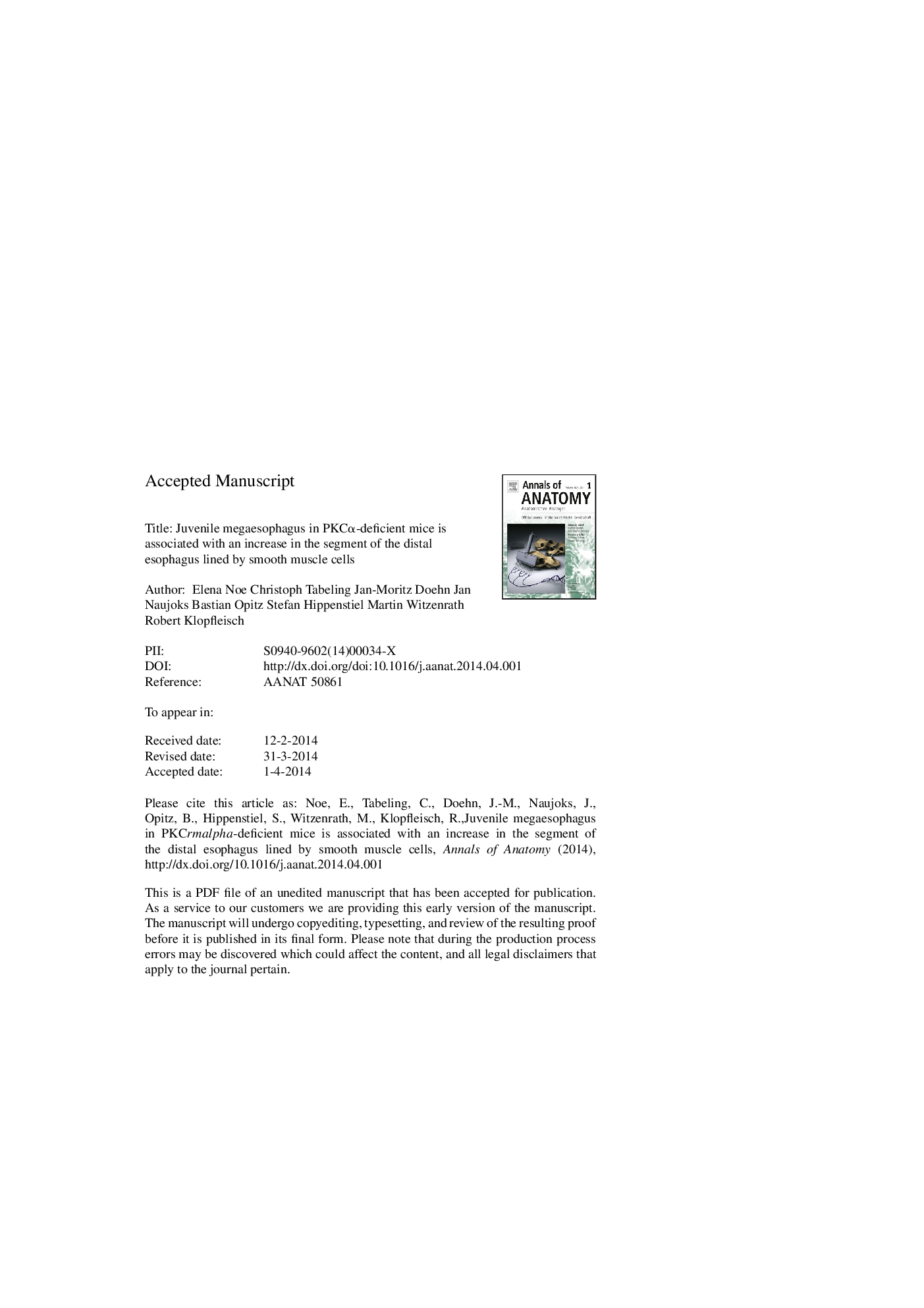| Article ID | Journal | Published Year | Pages | File Type |
|---|---|---|---|---|
| 8461069 | Annals of Anatomy - Anatomischer Anzeiger | 2014 | 26 Pages |
Abstract
Megaesophagus in mice has been associated with several genetic defects. In the present study we expand the range of genes associated with esophageal function and morphology by protein kinase C alpha (PKCα). PKCα-deficient mice showed a six times increased prevalence of megaesophagus at the age of 9-10 weeks compared to wild-type animals. In contrast, in a restricted number of 14-month-old animals of both genotypes a similar prevalence of megaesophagus was found. Megaesophagus was associated with an increased portion of the distal esophagus lined by smooth muscle cells. Achalasia-like degeneration or loss of neuronal cells, inflammation or fibrosis was not present in any of the animals. The results of the study therefore suggest that PKCα expression is associated with a delayed replacement of embryonic smooth muscle by skeletal muscle at the distal esophagus and consecutive megaesophagus in young mice, which, however, is not present at the same prevalence at an advanced age.
Related Topics
Life Sciences
Biochemistry, Genetics and Molecular Biology
Cell Biology
Authors
Elena Noe, Christoph Tabeling, Jan-Moritz Doehn, Jan Naujoks, Bastian Opitz, Stefan Hippenstiel, Martin Witzenrath, Robert Klopfleisch,
